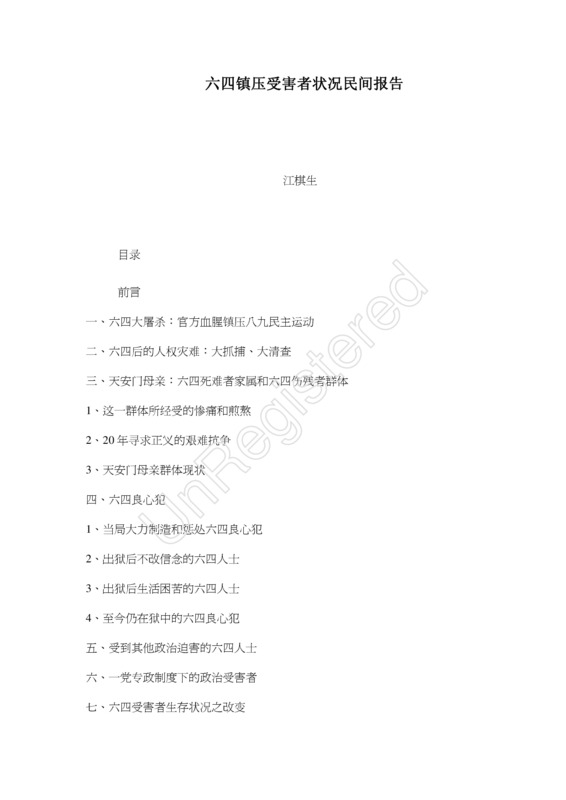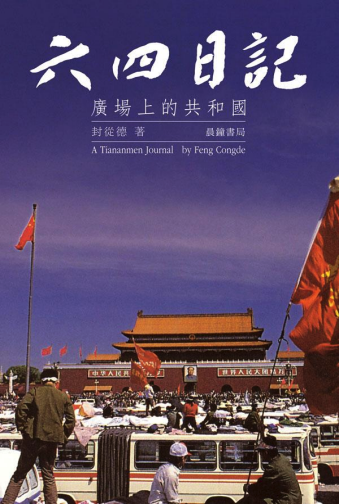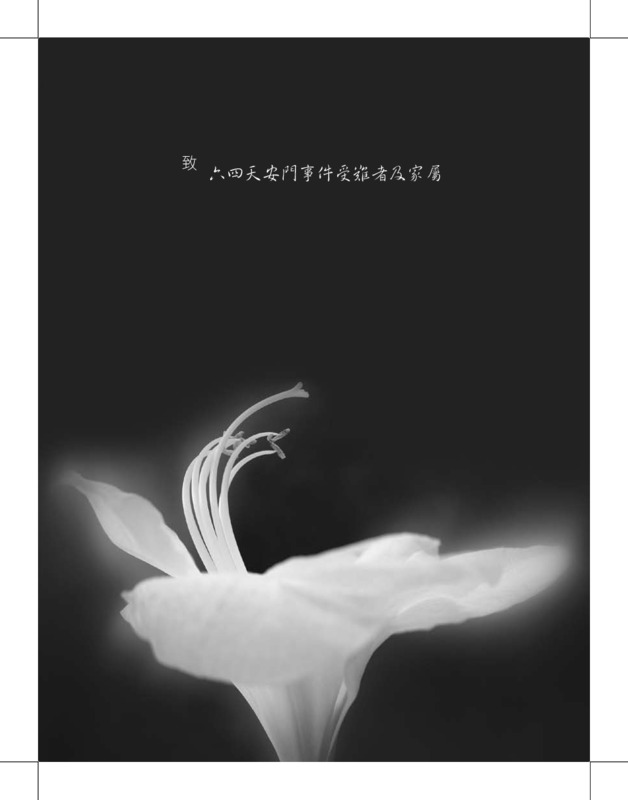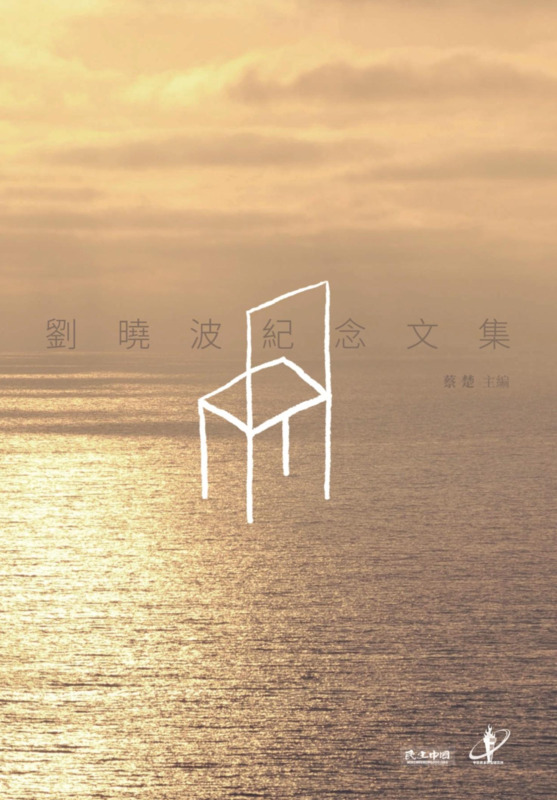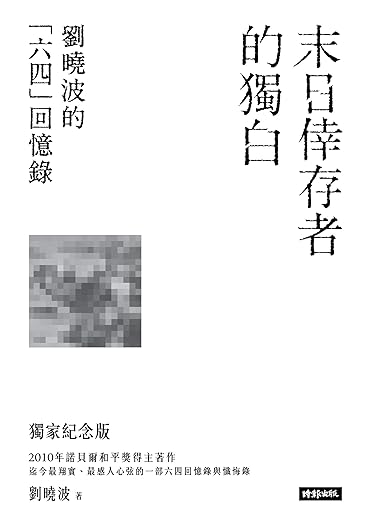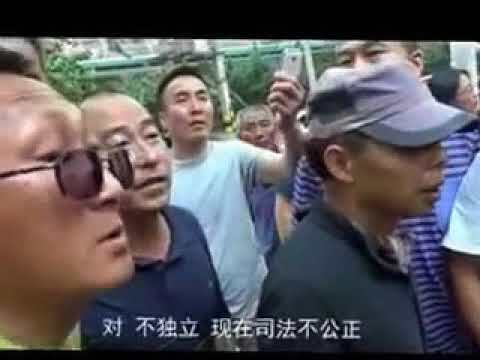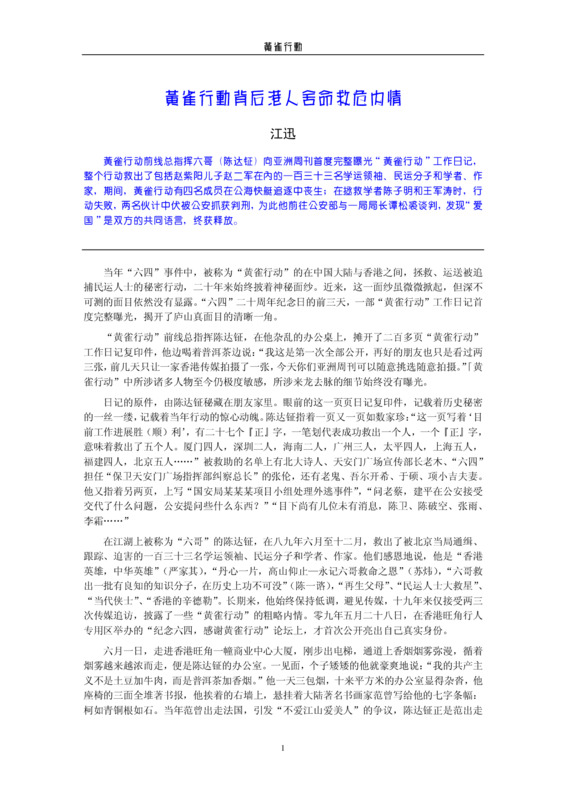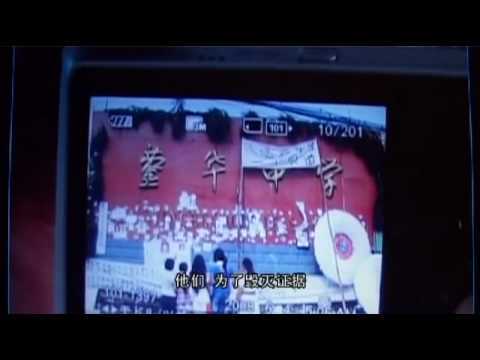Explore the collection
Showing 121 items in the collection
121 items
Book
Inside the bloody clearing of Tiananmen Square
This book is a complete record of the entire process of the forceful clearing of Tiananmen Square in 1989, which began at noon on June 3, 1989, and ended at 10:00 a.m. on June 4th. The author, Wu Renhua, who experienced the June Fourth Incident, describes some of the important events and characters in the book. For example, how Liu Xiaobo, Hou Dejian and other "Four Gentlemen" contacted and negotiated with the PLA martial law forces; how the tanks of the six departments chased and crushed the evacuating students; and how the medical staff put their own lives at risk to save the wounded in the rain of bullets and bullets. The first draft of this book was completed in May 1990, according to Wu Renhua's own account. He fled the mainland in 1992. In May 2007, he published *Inside the Bloody Clearance of Tiananmen Square* in Los Angeles. This was his first monograph on June Fourth. The book has since been updated and reprinted several times.
Article
Jiang Qisheng: Civilian Report on the Situation of June 4 Victims in China
The Tiananmen Square massacre on June 4, 1989 and the subsequent mass arrests and purges created tens of thousands of June Fourth victims. Among them were June Fourth victims who fell into a pool of blood, the June Fourth disabled who were shot, the families of the June Fourth victims and the severely disabled, the June Fourth prisoners of conscience who were sentenced to imprisonment or re-education-through-labor, and the June Fourth victims who were subjected to other political persecution. On the occasion of the 20th anniversary of June Fourth, as part of Chinese civil society's efforts to recover the historical truth and rebuild historical memory, this report gives a basic description of the suffering of the June Fourth victims and their arduous journey over the past 20 years. It also analyzes the systemic factors that have contributed to the victims' suffering and proposes corresponding recommendations on how to change their living conditions.
Book
June 4 Diary: The Republic in the Square
This diary took eighteen years to finalize. Based on a first draft from 1990-1991, it is a complete account of the author's experiences at that time: from his initial participation in the formation of the Preparatory Committee of Beijing University (Beida) to his election as the President of Beida’s Union and as the Deputy Commander-in-Chief of the Forum. It continues up to the time of the evacuation vote by presidency of Forum in the early morning of June 4 and includes other tragic and poignant scenes of history.
Purchase link:https://www.books.com.tw/products/0010436793
Book
June Fourth Poems
"June Fourth Poetry Collection" is a collection of poems about the June Fourth Incident in 1989. The poems were collected and compiled by international experts and scholars in collaboration with activists who participated in the movement and those who lived in exile during the year following the crackdown. The books was published by Boulder Publishing House. Jiang Pinchao, a student leader of the pro-democracy movement in those years, is the chief editor of the collection. It is divided into five parts. The book was not published in mainland China due to seizure by the Chinese government. In May 2007, it was distributed by the June Fourth Cultural Communication Association and Amnesty International at the California Institute of Technology in the United States.
Film and Video
Let the Sunshine Reach the Earth
Wang Lihong is a Beijing netizen, civilian journalist, and public service volunteer. Wang was accused of “picking quarrels and provoking trouble” for supporting three netizens in Fujian. On August 12, 2011, the case was heard for the first time in the Wenyuhe Court of the People's Court of Chaoyang District, Beijing. This film includes interviews with Wang Lihong's relatives, friends, defense lawyers and netizens, and records the historical scene of onlookers in the courts.
Ai Xiaoming’s film “Postcard,” also released in 2011, elaborates Wang Lihong’s activism in broader strokes, while “Let the Sunshine Reach the Earth” focuses on the process of her trial.
This film is in Chinese with Chinese subtitles.
Book
Li Peng's June 4 Diary
"Li Peng's June 4 Diary" was published by Bao Park, the son of Bao Tong, the political secretary of former CCP General Secretary Zhao Ziyang. Based on a manuscript of a diary allegedly kept by Li Peng during the June 4 Tiananmen Square incident, the book was originally scheduled to be published in Hong Kong by New Century Press on June 22, 2010. At the time of the June 4, 1989 Tiananmen Square incident, Li Peng was a member of the Standing Committee of the Political Bureau of the Communist Party of China Central Committee (CCP Central Committee) and the Premier of the State Council. The diary covers the period from April 15, 1989 to June 24, 1989, when Li Peng was a member of the Politburo Standing Committee and Premier of the State Council. Bao Park said that, apart from converting the diary from the original simplified Chinese characters to traditional Chinese characters, "nothing will be added, nothing will be subtracted, and nothing will be changed" in the book. The book was later published in the United States.
Book
Liu Xiaobo Memorial Anthology
This book is a collection of essays in memory of the Nobel Peace Prize winner Liu Xiaobo. It was edited by Cai Chu following his death.
Book
Living Monument in the Square: June 4 Bloodshed through the Eyes of a Hong Kong Woman Reporter
The author of this book was a reporter for "Sing Tao Daily" and was stationed in Beijing at the end of April 1989 to cover the democracy movement. The book is divided into six main parts: Square Facts records the course of the 1989 democracy movement, from the author's visit to Beijing in April to the early morning of June 4, when she and the masses were evacuated from Tiananmen Square. The second part concerns post-hijacking memories, which are some of the author's interviews from 1989. The third part concerns the interviews. The author had interviewed 7 student leaders and intellectuals that year. The leaders told her the reasons why they devoted themselves to the student movement. The fourth part is about the rest of the author's life, from June 4 to December 1990. The author has recorded some fragments of her speeches to the secondary school students in Hong Kong. Some of them are sentimental, some of them are confessional, and all of them are sincere and heartfelt. The fifth part is "Twenty Years of Wounds," which is a reminiscence written by the author on the 20th anniversary of June Fourth. The sixth part is about the grassroots of June 4. These grassroots actors have been pretty much forgotten. The author wanted to write a biography of the grassroots of June 4 in order to fill in gaps in history.
Book
Major Events, Tiananmen 1989
The author was a key member of the 1989 pro-democracy movement when he was teaching at the Chinese University of Political Science and Law. After the June 4 massacre, he went into exile. Currently, he has settled in Taiwan, where he teaches a course on the truth of the June Fourth Incident at Soochow University and National Chung Cheng University. Wu Renhua has published several books related to the June Fourth Incident. With a master's degree in Classical Literature from Peking University, he has written a book on June 4 that emphasizes the reliability of the sources of information. This book records the major events that happened every day during the June 4 period (April 15th to June 9th).
Book
Monologue of a Doomsday Survivor: About Me and June 4
购书链接:https://www.kobo.com/hk/zh/ebook/ZoerWPfG8TiqoXIYwvW2iw。
Book
My Mother :Gao Yaojie
Author Eva writes about her relationship with Gao Yaojie, a Chinese doctor. Dr. Gao Yaojie, who was severely repressed by the Chinese government for exposing the mass infection of Chinese farmers in Henan Province, China, by selling their blood, had no choice but to leave China at the age of 78 and go into exile in the United States. The dissemination of her story is strictly forbidden in China. In this book, author Eva describes Gao Yaojie's noble heart, her story, and her experiences.
Film and Video
New Citizens’ Trial
In late January 2014, on the eve of the Lunar New Year, Xu Zhiyong, Zhao Changqing, Ding Jiaxi and other advocates of the New Citizens’ Movement were charged with "gathering a crowd to disrupt order in a public place." The case was heard for the first time in courts at different levels in Beijing. This film intersperses on-site records with interviews with defense lawyer Zhang Qingfang, scholar Guo Yuhua, entrepreneur Wang Ying, and others to present citizens' understanding of the New Citizens' Movement.
This series of films are in Chinese with Chinese subtitles.
Article
New Evidence Concerning the Authenticity of The Tiananmen Papers
Few books on recent Chinese history have caused such controversy as "The Tiananmen Papers". The book is ostensibly a collection of original documents compiled by Zhang Liang, a pseudonym for someone claiming to be a high-ranking CCP official who leaked the papers. The book’s credibility was aided by it being edited by two well-known western scholars of China, Perry Link, then of Princeton University and now of the University of California, Riverside, as well as Columbia University professor Andrew J. Nathan. An introduction was written by Orville Schell, a well-known writer on China who was then a professor at the University of California, Berkeley.
Almost immediately upon publication, the book was criticized for its unclear provenance, a point aided by Zhang Liang’s anonymity. Most scholars agreed that the papers were a mixture of previously released documents from government offices, which were uncontroversial, and accounts of meetings between senior leaders. The latter came under scrutiny, with some saying that the language appeared stilted or seemed to mix in language used in leaders’ public speeches.
This essay by the well-known Hong Kong publisher Bao Pu points out that since 2004, most people seem to feel that the issue of provenance will never be settled but that the documents are still important historically. Bao critiques this, using books published over the past two decades to update the question of authenticity. In careful language, he further questions key points of the documents, showing that they do not match new material, such as memoirs. Bao's conclusion: the Tiananmen Papers are not documents from the CCP’s archive, which is their claim, but rather works of dubious origin that cannot be used to better understand the events leading up to the massacre of civilians on the night of June 3-4, 1989. The top-secret documents, Bao writes, are a “phantom” that must not be used as building blocks for history.
Film and Video
Onlookers
People from all over China rush to the scene of China's trial of Bo Xilai, the former Chongqing Party Secretary of the Communist Party of China. The trial took place in August 2013 at the Jinan Intermediate People's Court in Shandong Province. Reporter Liu Xiangnan captured the scene.
Article
Operation Yellow Bird
After the bloody suppression of the June 4 Democracy Movement, the Chinese Communist Party went on a massive manhunt for the key figures of the movement. Some Hong Kong people organized a secret channel to help pro-democracy activists escape from the Mainland, codenamed "Operation Yellow Bird." The author of this book, Jiang Xun, is a veteran of the media and describes in detail how the "Yellow Bird Operation" took place.
Article
Oral Interviews with Global Feminists
As one of China's foremost feminist activists and thinkers, Ai was interviewed by the Global Feminisms Project at the University of Michigan. In this interview, Ai talks about her upbringing as well as about the current state of feminism in China and its outlook.
Film and Video
Our Children
This documentary records the stories of the 2008 Sichuan earthquake. The narrators mainly consist of the parents of students who fell victim to the earthquake, and the film is interspersed with comments from media workers, independent scholars, internet authors, geologists, and environmental protection and legal workers. They expressed their views on the Sichuan earthquake from different perspectives.
This film is in Chinese with Chinese subtitles.
Book
Pastor Wang Yi's Anthology: Carrying the Cross - A History of Chinese Family Churches
Wang Yi, of Chengdu, Sichuan Province, is a well-known Chinese intellectual who later became a pastor. The Early Rain Reformed Church that he led was one of the most famous unregistered churches in China. The church occupied the floor of an office building in Chengdu and had its own bookstore, seminary, and pre-school. It regularly had services of hundreds of people. Later, the church had internal conflicts, while at the same time Wang became more outspoken in his criticism of the government. In 2018, he criticized Xi Jinping for abolishing term limits and allowing himself to become ruler of China for life. Pastor Wang was sentenced to nine years in prison in 2019.
This book is based on the recordings of Pastor Wang's classes at Early Rain in 2018. The first five chapters were reviewed by Pastor Wang himself, but he was arrested before he could complete the review of the last five chapters. The essays cover key issues that concerned Wang, including the role of the church in China as a city on the hill, the role of the Reform church in China, and the history of unregistered churches in China.
Film and Video
Postcard
After retiring from her job as a cadre, Wang Lihong fulfilled what she saw as her civic responsibility to become more active in women’s rights in China, especially the protection of their legal rights. In 2009-2010, she became involved in the “Fujian Netizen Case,” which resulted in the arrest of three human rights activists, who all sought to investigate the death of a 25-year-old women believed to have been murdered in a gang rape by men associated with the local police. Wang Lihong wrote letters to the General Secretary of the Fujian Provincial Committee of the Communist Party of China every day for nine consecutive days, calling on the authorities to let them go home for the New Year. For this reason, she was criminally detained by the authorities in March 2011 on suspicion of "picking quarrels and provoking trouble." The case was heard by the Beijing, Chaoyang District People's Court on August 12; nearly a month later, on September 9, the court issued a guilty verdict and sentenced Wang Lihong to nine months in prison. The film documents her case, and raises questions about the accountability of the local government and police. Another one of Ai Xiaoming’s films, “Let the Sunshine Reach the Earth,” documents Wang Lihong’s trial process in more detail.
This film is in Chinese with Chinese subtitles.
Book
Prisoner of the State: The Secret Journal of Premier Zhao Ziyang
“The Course of Reform”, a memoir by Zhao Ziyang, former General Secretary of the Central Committee of the Communist Party of China, was published on May 29, 2009 by New Century Press in Hong Kong. Its English translation, “Prisoner of the State: The Secret Journal of Premier Zhao Ziyang” was published on May 13 before that. According to the book's preface, in 1992, Du Guanzheng, an old subordinate of Zhao Ziyang and former director of the State Press and Publication Administration, together with Xiao Hongda, another former high-ranking CCP official, persuaded Zhao Ziyang, who was under house arrest, to organize his experiences into a book.
Purchase link: https://www.kobo.com/hk/zh/ebook/ZoerWPfG8TiqoXIYwvW2iw.

